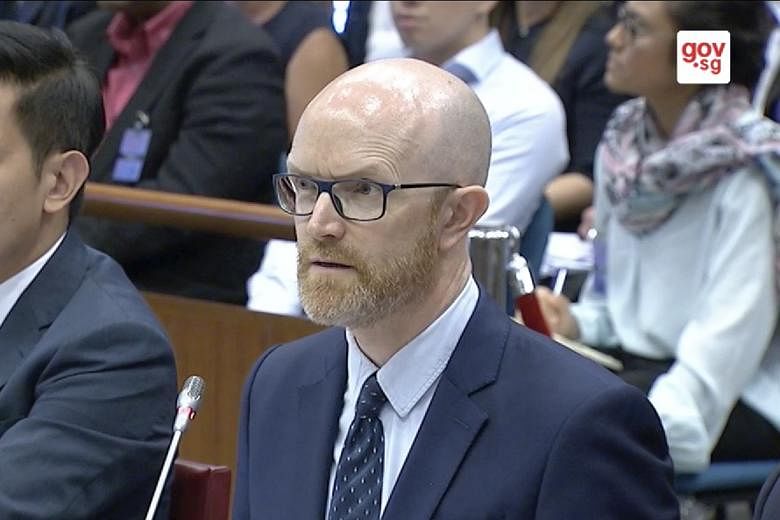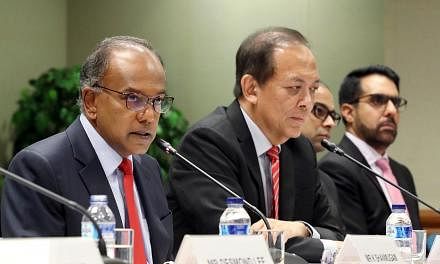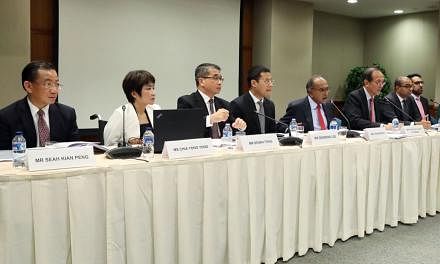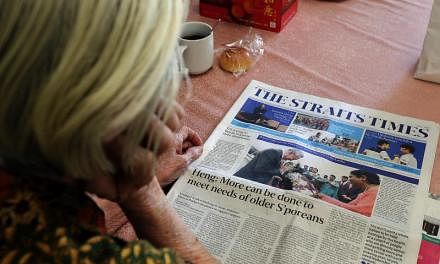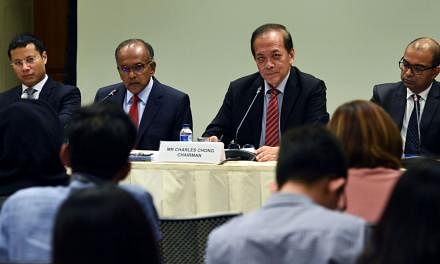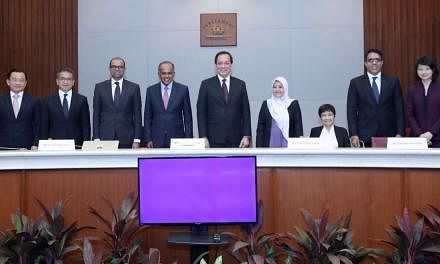Tech giant Facebook is prepared to consider banning foreign currencies from being used to pay for Singapore political advertising on its platform, its vice-president of public policy for Asia-Pacific, Mr Simon Milner, said yesterday.
"We do not as yet have that policy," he added, when responding to Law and Home Affairs Minister K. Shanmugam at the Select Committee hearing on deliberate online falsehoods. He agreed with Mr Shanmugam that Facebook should take actions to ensure only people based in the country can buy ads meant for the country, and said he expects the currency measure to be part of "the range of things that we do to preserve the integrity" of elections.
It, however, will be applied to countries that forbid foreign influence in domestic politics such as Singapore, he said.
Facebook's inability to trace sources of funding for political ads has come under fire globally, following revelations that tech giants - including Twitter and Google - could have been exploited by Russia to sway voters. Facebook, in particular, had accepted political ads in the 2016 US presidential election that were paid for in Russian roubles.
Asked about it at a US Senate judiciary hearing last year, Facebook's vice-president and general counsel Colin Stretch did not commit to banning political ads bought in foreign currencies, saying that currencies did not necessarily indicate the source country of an ad.
Mr Milner said: "It is really difficult to define what is a political ad. Most of the ads, in the case of the US, may not have been classified as political ads under the jurisdiction there because they did not endorse a candidate."
Responding, Mr Shanmugam said: "So, if we define what is a political ad for you, then you will do it?"
Yes, said Mr Milner. He later said the type of political ad would have to be narrowly defined, as a move against foreign currency payments may affect non-state organisations.
"Remember, we have international organisations, human rights organisations, that will often seek to advertise on our platform to highlight human rights abuses," he said, adding that he meant other countries.
Highlighting Facebook's recent efforts, he said his company is piloting a "transparency exercise" in Canada, and plans to use it in the US mid-term elections later this year.
It requires Facebook page owners and administrators who want to put up ads to verify their details in a note sent by snail mail to Facebook.
"It will be available globally. By shining a spotlight, we know that is often the best antidote to malfeasance and bad behaviour, and that is what we will be doing," he added.
Representatives from Google, and Twitter set out steps they took to improve their policies and add new tools to combat deliberate online untruths. Google's Asia-Pacific news lab lead Irene Jay Liu said its "fact-check tag" shows certain news stories have been checked by news publishers and fact-checking entities.
Google is studying how to discern between low-and high-quality content, using algorithms to tell facts from falsehoods, she told Minister for Social and Family Development Desmond Lee.
Twitter's director of public policy and philanthropy in Asia-Pacific Kathleen Reen said it has made "an enormous amount of progress" since the US presidential election.
She highlighted Twitter chief executive Jack Dorsey's call for proposals this month to look into bad behaviour on the platform, with the firm sharing its data and funding researchers to join the effort.
Public hearings to fight online falsehoods: Read the submissions here and watch more videos.
